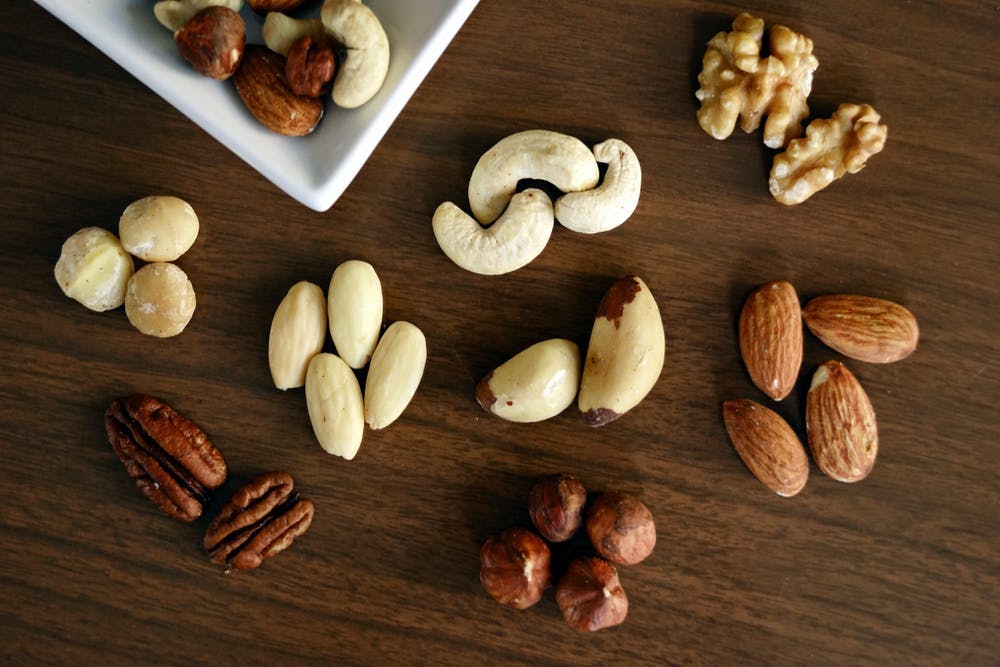Choking hazards are a significantly underestimated issue among new parents.
Foods that don’t easily dissolve in their mouth, those that can’t be mashed with their gums or teeth, or those that can be easily sucked into their windpipe are all potential dangers for choking. Some foods are riskier than others, let’s take a look at the top choking hazards for babies and toddlers:
These include:

- Uncooked or undercooked kishmish or raisins
- Whole grapes, especially with skin
- Raw firm-fleshed vegetables like carrots, bell peppers
- Raw firm-fleshed fruit such as apples, pears, guavas, etc
- Chunks of meat or poultry like steaks and medallions
- Whole peas (unless they’re smashed)
- Popcorn
- All sorts of Nuts
- Chunks of peanut butter or similar nut butters
- Hot dogs, sausages and large smoked meats (smoked meats are bad regardless of form factor)
- Chewing gum and similar sticky sweets like toffees or hard caramels
Once baby molars start to make their way in around 12 months, you can slowly begin foodstuffs that can be consumed after chewing.
Some examples are those like firm-flesh vegetables or fruits (grated or diced into tiny pieces), small slices of meat and poultry (essential to cut across the grain as we do for steaks) and seedless grapes (skinned and halved and thoroughly washed).
This is still not the time to start raw carrots, amla, popcorn, nuts and smoked meats until your child is chewing well.
It’s safer to wait until age four (though it may be a little earlier for some children and later for others).
Even then, make sure they’re diced, cubed or very thinly sliced if possible.
When can I feed my baby allergenic foods?

During the first year, you may have heard that you should avoid feeding babies allergenic foods — including peanuts, eggs, wheat, dairy, and shellfish. But the AAP now recommends introducing allergenic foods early, between 4 and 11 months, to prevent food allergies.
And that’s a good thing since many of these foods, nuts especially, are packed with healthy protein, folate and other essential nutrients. Just talk to your doctor first before serving them (especially if allergies run in your immediate family), and introduce them one at a time at home where you can watch closely for a reaction.
Also, avoid whole nuts since they can be a choking hazard before the age of 4. Instead, start with smooth nut spreads and kinds of butter, spread very thin.

